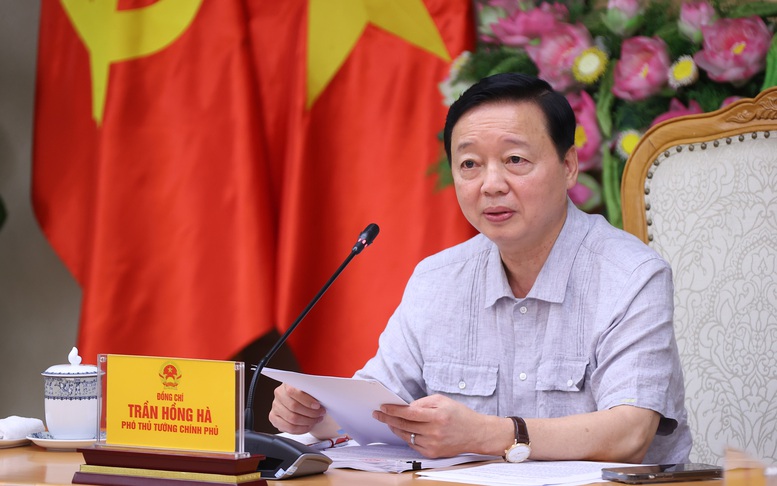
Deputy Prime Minister Tran Hong Ha emphasized that to sustainably develop the marine economy , the prerequisite is to build and effectively operate an inter-sectoral, inter-regional and inter-national coordination mechanism - Photo: VGP/Minh Khoi
Avoid having to coordinate everything
The Deputy Prime Minister said that the inter-sectoral coordination mechanism should be seen as a decision-making support tool, helping to choose the optimal development plan in the context of conflicts between sectors, economic fields or localities in the same sea area.
Therefore, the inter-sectoral coordination mechanism needs to be formed on the basis of full awareness of the multi-sectoral, multi-sectoral and inter-regional nature of marine economic development. Currently, we have only built a comprehensive coastal management mechanism, not yet expanded to the entire marine space, showing that this is an issue that needs further in-depth, systematic research and reference to international experience.
The process of developing a coordination mechanism needs to clarify the theoretical, scientific , legal and practical basis to accurately determine the contents that need to be coordinated between sectors and regions. At the same time, it is necessary to avoid duplication or overlap with the functions and tasks of the National Steering Committee for the implementation of the Strategy for Sustainable Development of the Marine Economy (National Committee). Similarly, at the local level, it is also necessary to design a coordination mechanism between departments and sectors in a clear and effective manner.
"The most important thing is to clearly identify the focus, which are inter-sectoral, inter-regional, inter-local, or even inter-national issues, otherwise it is easy to fall into a situation where "everything must be coordinated", leading to overload, causing technical and financial obstacles and negatively affecting development", the Deputy Prime Minister said and emphasized that "the coordination mechanism must be based on the principle of decentralization, only retaining issues that really need coordination at the central level, the rest must be assigned to localities".
According to the report of the Ministry of Agriculture and Environment, after 7 years of implementing the Strategy for sustainable development of Vietnam's marine economy to 2030, with a vision to 2045 (Strategy), key marine economic sectors such as tourism - marine services, maritime economy, oil and gas exploitation, fisheries, renewable energy and a number of new marine economic sectors have had positive developments.
However, the implementation of specific tasks under the Strategy is still slower than planned. Of the total 169 projects and tasks assigned by the Government to ministries, sectors and 28 coastal provinces and cities, only 35 are currently being implemented, equivalent to 20.7%. This significantly affects the progress and overall goals of the National Marine Strategy.
One of the main reasons pointed out is the lack of a strong enough inter-sectoral coordination mechanism to monitor, update progress, remove obstacles and create connections between ongoing projects and schemes.
Due to the large volume of projects and the participation of many ministries and sectors, but the lack of an inter-sectoral coordination mechanism, updating the progress and implementation status of projects is still inadequate and limited.
Ministries, branches and localities face difficulties, obstacles, lack of sharing and reference of relevant data and documents, leading to slow implementation of projects or duplicate content, failure to inherit and exploit the results of related projects, leading to waste of state budget.
In the context of many approved plans related to marine space and resources such as the National Marine Space Plan, the Master Plan for Coastal Exploitation, etc., the need for a close and effective coordination mechanism between agencies is becoming increasingly urgent. The specificity of the marine space - where many overlapping economic activities take place - requires a strong multi-sectoral coordination mechanism to resolve inter-regional and inter-sectoral issues arising during the implementation of the Strategy.
Therefore, the inter-sectoral coordination mechanism on sustainable development of the marine economy aims to specify the operating regulations of the National Steering Committee on the implementation of the Strategy for sustainable development of the marine economy, enhance information sharing, support coordination in solving problems arising in practical implementation, while ensuring no overlap with current laws and consistent with the functions and tasks of each ministry, sector and locality; creating a foundation for more sustainable and effective development of the marine economy in the coming time.
At the meeting, leaders and representatives of the Ministries of Foreign Affairs, National Defense, Justice, Finance, and Industry and Trade said that the establishment of an inter-sectoral coordination mechanism is not only consistent with Vietnam's Marine Economic Development Strategy but also meets international trends when many countries in the ASEAN region and around the world have established similar mechanisms; it is necessary to take advantage of and perfect the existing coordination mechanism, avoid creating new procedures, and review the activities and budget of the National Committee to improve the effectiveness of sustainable marine economic development.
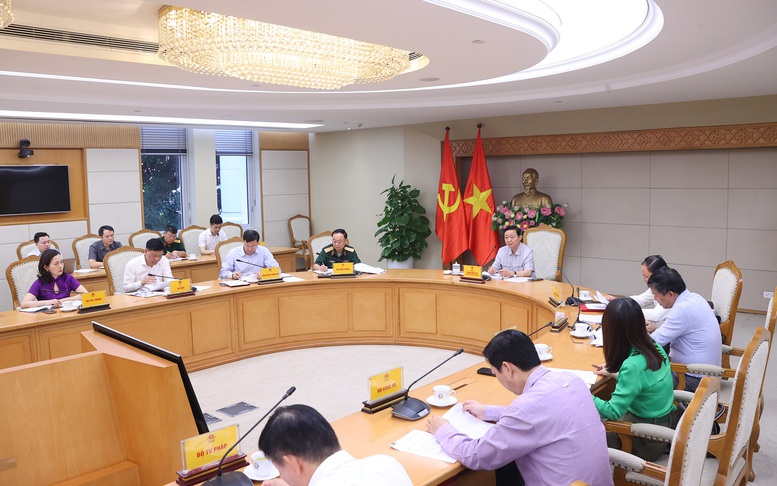
Deputy Prime Minister Tran Hong Ha chaired a meeting with ministries and sectors on inter-sectoral coordination mechanisms in sustainable development of the marine economy - Photo: VGP/Minh Khoi
Concluding the meeting, Deputy Prime Minister Tran Hong Ha emphasized that to sustainably develop the marine economy, the prerequisite is to build and effectively operate an inter-sectoral, inter-regional and inter-national coordination mechanism. This is the foundation for comprehensive management and exploitation of resources, resolving conflicts and selecting the optimal solution among development areas at sea.
According to the Deputy Prime Minister, strategy and planning are two important tools in inter-sectoral coordination. However, to solve the problem of multi-sectoral and multi-sector development in a sea area, where there are potential conflicts between maritime, wind power, fisheries, tourism, oil and gas, etc., and even international factors, it is necessary to add other effective coordination tools.
In that spirit, the Deputy Prime Minister requested the Ministry of Agriculture and Environment to take the lead in coordinating with relevant ministries and sectors to research and propose mechanisms to resolve development conflicts, selecting options based on the main criteria of environmental and economic efficiency and job creation capacity; research and develop a set of analytical and evaluation support tools to support the process of selecting appropriate development options in areas with great potential, resolving inter-sectoral conflicts; and a mechanism to coordinate the investigation and survey of marine environmental resources to serve the implementation of strategies and planning for marine economic development.
Pointing out two key contents: building an inter-sectoral, inter-regional, and inter-national coordination mechanism; and ensuring financial conditions, organizational structure, and data to serve that mechanism, the Deputy Prime Minister assigned the Ministry of Agriculture and Environment to urgently review and complete the regulations and determine the scope of activities of the National Committee. In particular, focusing on resolving conflicts of an inter-provincial, inter-regional nature or related to key national projects, or issues at the international level such as implementing international agreements, marine scientific research, handling environmental incidents with cross-border factors or beyond the capacity of localities, etc.; proposing a financial mechanism for basic investigation activities and building national and local databases on marine environmental resources.
The Deputy Prime Minister noted the close relationship between marine environmental resources and regional and provincial economic development strategies. If a development strategy risks affecting marine space or resources and the marine environment, the National Committee must provide its opinion. For example, ocean plastic waste is a global issue that requires consistent direction from land to sea and international coordination.
Minh Khoi
Source: https://baochinhphu.vn/tang-cuong-cong-cu-cho-co-che-dieu-phoi-lien-nganh-trong-phat-trien-ben-vung-kinh-te-bien-102250528151823903.htm






![[Photo] Prime Minister Pham Minh Chinh attends the event "Digital transformation of the banking industry by 2025"](https://vphoto.vietnam.vn/thumb/1200x675/vietnam/resource/IMAGE/2025/5/29/0e34cc7261d74e26b7f87cadff763eae)

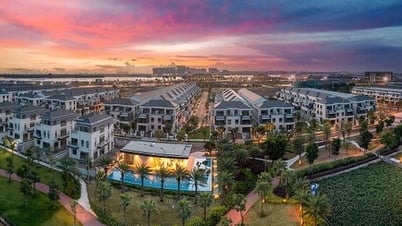



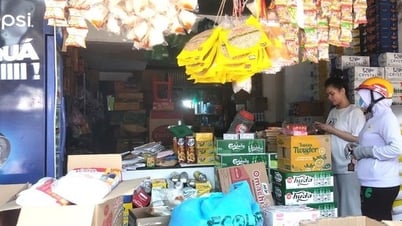
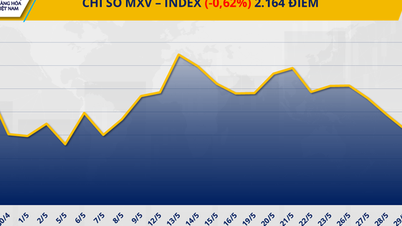
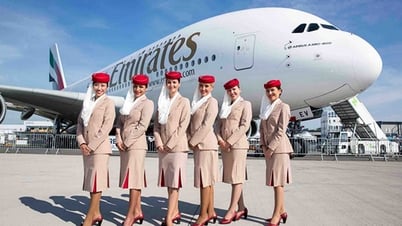





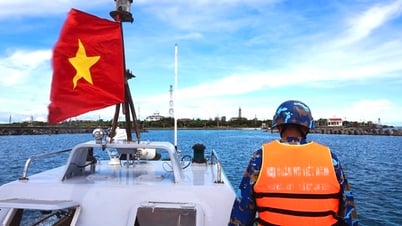

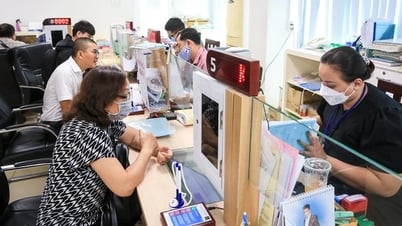
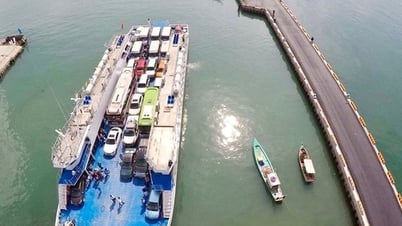
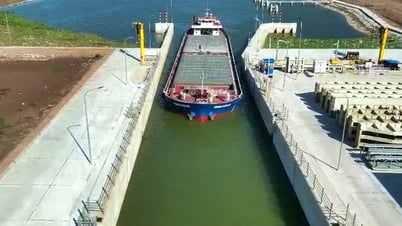
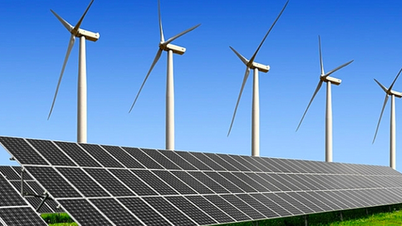
![[Photo] Prime Minister Pham Minh Chinh receives leaders of Excelerate Energy Group](https://vphoto.vietnam.vn/thumb/1200x675/vietnam/resource/IMAGE/2025/5/29/c1fbe073230443d0a5aae0bc264d07fe)





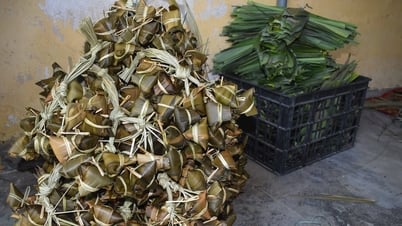









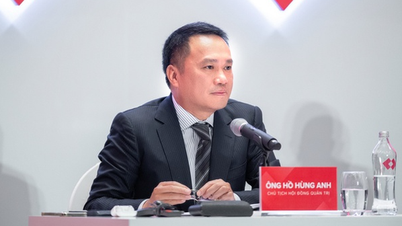








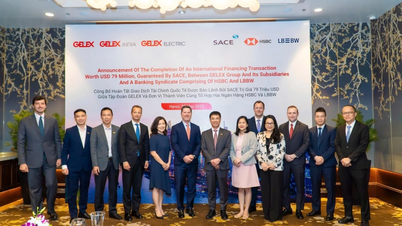

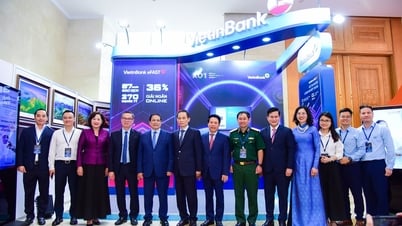









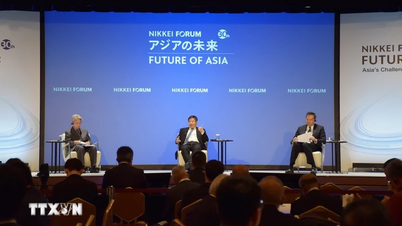
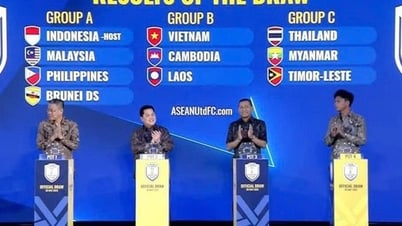

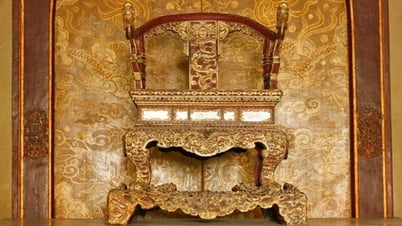
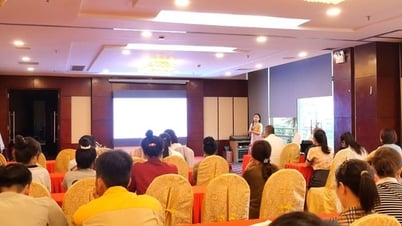
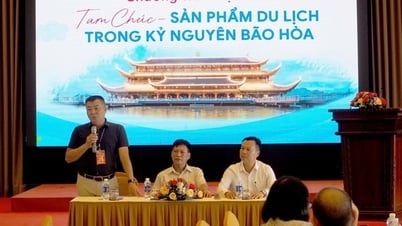


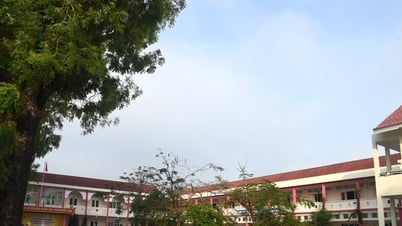
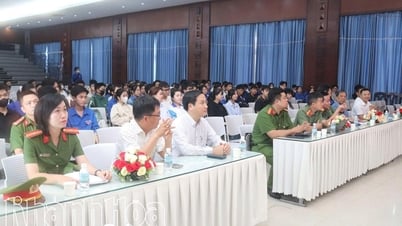

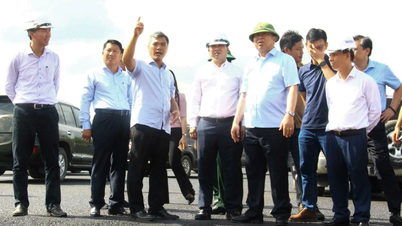


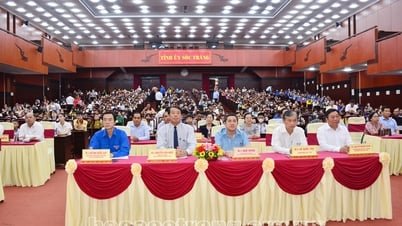

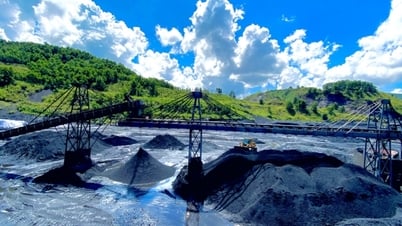




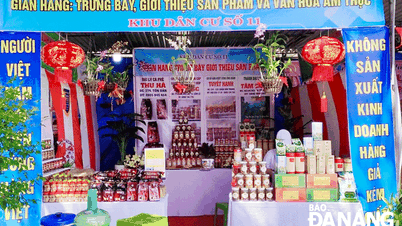

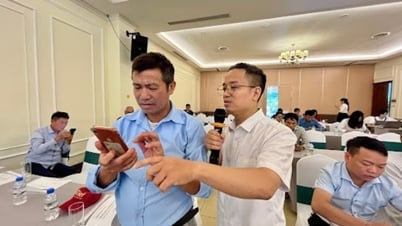






Comment (0)